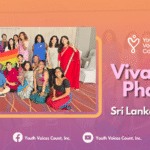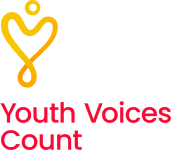Commemorating the 2024 International Youth Day (IYD) and its theme, “From Clicks to Progress: Youth Digital Pathways for Sustainable Development,” the Inter-agency Task Team on Young Key Populations (IATT) in Asia and the Pacific is championing efforts to bridge the digital divide for young key populations (YKPs). This collective effort is crucial for empowering YKPs to play a leading role in the AIDS response across the region. Addressing the digital divide ensures equitable access to essential information, healthcare services, and support networks. In a world increasingly reliant on digital tools, marginalized communities, including YKPs, often face connectivity barriers that exacerbate existing inequalities in HIV prevention, treatment, and care. UNAIDS (2024) reports a higher proportion of new HIV infections among young people (15-24 years) in Southeast Asia compared to the global average.
The digital divide in the Asia Pacific region significantly hampers young people’s access to essential HIV prevention, treatment, and care services. Limited internet access exacerbates existing inequalities, leaving vulnerable youth without critical information, online support networks, and digital health services that are vital for managing their health. UNICEF (2022) revealed that the South Asian region has a high number of children and young people lacking internet access affecting 768 million under the age of 25. More than 200 million women in South Asia do not have access to mobile phones or the internet (UNICEF, 2023).
Challenges faced by YKPs in accessing HIV prevention, treatment, and care through digital are diverse. A lack of digital literacy and skills among YKPs hampers their ability to navigate online platforms and utilize digital health tools effectively. Concerns about online safety, privacy, and data security deter many YKPs from engaging with digital platforms. Fear of exposure or discrimination can prevent them from seeking help or information online, underscoring the need for secure, stigma-free digital environments tailored to their unique needs. The high cost of devices and internet connectivity is a major barrier for YKPs, limiting their ability to access essential digital resources for HIV prevention, treatment, and care.
Although YKPs face such significant challenges through digital means, there are several innovative solutions emerging to bridge the digital divide. Through the IATT network, youth-led initiatives are empowering YKPs in the region to take control of their health by creating online platforms that provide accurate information and support in a language and format that resonates with them. One example is a collaboration between YouthLEAD and the UNESCO Regional Office Bangkok to uptake digital sources on comprehensive sexuality education in Vietnam and Lao PDR in 2024. A peer-to-peer support networks online, through Youth Voice Count and Y-Peer Asia Pacific, offer a safe space for YKPs to share experiences, seek advice, and build a sense of community, reducing isolation and stigma. Additionally, mobile health solutions, FunDoo chat-based platform supported by UNICEF, tailored specifically for vulnerable groups are making it easier to access sexual and reproductive health-related services discreetly and efficiently, even in resource-limited settings. These innovations are crucial in overcoming barriers and ensuring that YKPs have the digital tools and support they need to protect their health and well-being.
Ensuring inclusive access to digital tools and resources among YKPs requires targeted strategies that address the unique challenges they face. These strategies include enhancing digital literacy programs tailored to the needs of YKPs, ensuring online platforms are safe, secure, and free from stigma, and advocating affordable access to digital connectivity. The IATT plays a pivotal role in these efforts by coordinating multi-sectoral responses, advocating for policy changes, and supporting youth-led initiatives that empower YKPs to leverage digital tools for HIV prevention, treatment, and care. By fostering collaboration among governments, NGOs, and community organizations, the IATT helps create an enabling environment where YKPs can access the digital resources they need to protect their health and rights.
The IATT is keen to expand its works toward a digitally inclusive and equitable AIDS response where all individuals, regardless of their socio-economic status, geographic location, or identity, have equal access to digital tools, information, and services that support HIV prevention, treatment, and care. Rooting in the belief that technology should be a powerful enabler, the collective effort must break down barriers to healthcare and empower marginalized communities, especially young key populations, with the resources they need to protect their health and well-being. We call for the creation of secure, stigma-free online environments, ensuring that no one is left behind in the global fight against AIDS.
In conclusion, bridging the digital divide for YKPs is imperative for a successful AIDS response in the Asia Pacific region. As we commemorate International Youth Day 2024, the critical need to address barriers to digital access becomes increasingly clear. By enhancing digital literacy, ensuring safe online spaces, and making technology accessible, we can empower YKPs with the tools they need to navigate HIV prevention, treatment, and care. The innovative solutions driven by youth-led initiatives, peer support networks, and tailored mobile health platforms demonstrate the potential for technology to transform access to essential services. With the IATT leading these efforts, a digitally inclusive and equitable AIDS response is within reach. Together, we can create a world where every young person has the opportunity to thrive, with access to the digital resources crucial for their health and well-being.
By Worapot Yodpet and Anthony Lopez, co-chairs of the Inter-agency Task Team on Young Key Populations (IATT) in Asia and the Pacific, 2024
If you have any amazing ideas or plans on engaging with us, drop us an email at secretariat@yvc-asiapacific.org ![]()
Count your voice with us! ![]()







